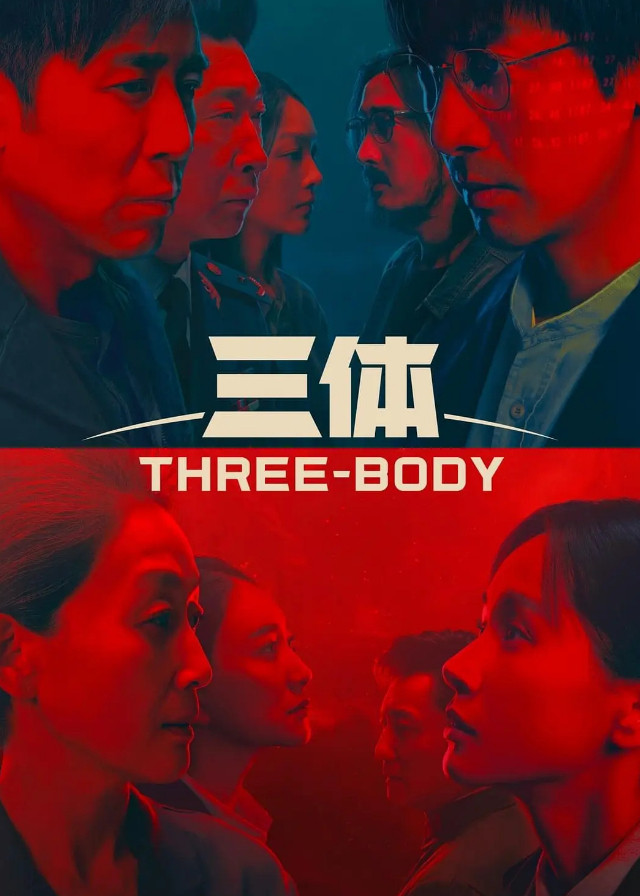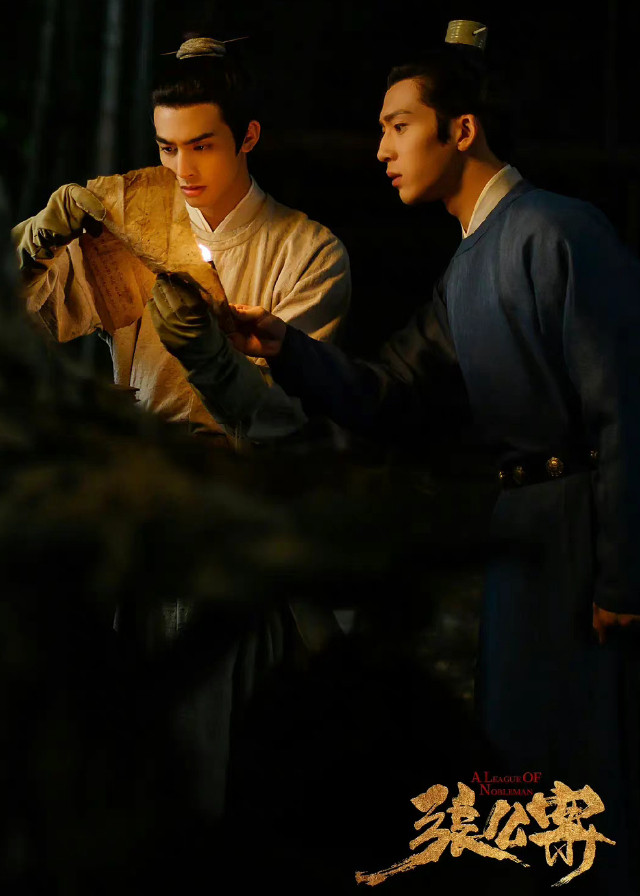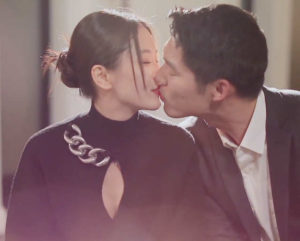Three-Body Episode 23 Recap
> Three-Body Recap
Before her death, Mu Xing's investigation led her to Tsinghua University, which was Ye Wenjie's workplace. Chen Xue, the daughter of Ye Wenjie's sister, Ye Wenxue, had previously achieved direct admission to Tsinghua University through independent enrollment, securing the only guaranteed spot that year. However, the person ranked second in the admissions process approached Ye Wenxue and paid a substantial sum of money to buy Chen Xue's admission slot.
Consequently, Ye Wenxue secretly withdrew Chen Xue's college application and severed mother-daughter ties with her. Later, Ye Wenjie, a physics department teacher at Tsinghua, found Chen Xue and informed her that her mother had an older sister. After this, Chen Xue went on to study at MIT and had only recently returned to China in June after completing her graduate studies. Investigators noted that her actions appeared normal and went unnoticed until the two recent murders.
All accumulated clues increasingly pointed towards Ye Wenjie. Wang Miao, however, remained deeply perplexed and troubled by one particular detail: Yang Dong was Ye Wenjie's daughter. Shi Qiang, observing Wang Miao's distress, sharply retorted that the enemy they faced was not human—it was the Earth-Trisolaris Organization, an extraterrestrial entity.
He warned Wang Miao against attempting to empathize with the enemy, asserting that such an emotional approach would overturn his judgment of right and wrong and leave his kindness vulnerable to exploitation, making his situation more dangerous. This stern advice was particularly crucial as Wang Miao was soon to attend an ETO gathering, a situation Shi Qiang anticipated would be far more complex and dangerous than they could imagine.
Wang Miao acknowledged the warning, jesting about Shi Qiang being there to back him up, even joking about becoming a martyr if caught, to which Shi Qiang gruffly dismissed, telling him to wait for rescue instead. Wang Miao then drove alone to the specified address. Meanwhile, Ye Wenjie told Chen Xue that she had been influenced by Pan Han.
Chen Xue, in turn, explained that she had eliminated Mu Xing to safeguard Ye Wenjie, believing Mu Xing would have posed a threat otherwise. She also reminded Ye Wenjie that their comrades should not become enemies, and that Ye Wenjie's original intent in agreeing to form the ETO and become its commander was to steer its members away from an anti-human path.
With the general assembly about to commence and everyone awaiting her final instruction, Ye Wenjie ultimately confirmed the dispatch of a "confirmation document," signaling her final command. Concurrently, Shi Qiang was making preparations for the ETO meeting. He deduced that this gathering, unlike previous netizen meet-ups which were for screening members, would include core ETO members and involve significant discussions, especially since the Adventists had just dealt with the Redemptionists.
He suggested a full deployment to apprehend key figures, emphasizing that the ETO was not a typical criminal organization and might have armed forces present. General Chang Weisi provided strong support, authorizing the Snow Leopard Special Forces and gunships to be on standby and granting Shi Qiang full on-scene command. Chen Xue later discovered that files on Ye Wenjie's computer had been restored.
She explained that merely deleting files to the Recycle Bin was insufficient; they needed to be "shredded" completely to prevent recovery, pointing out files with a "Restored" tag. Ye Wenjie casually dismissed it as an accidental action but internally knew that her daughter, Yang Dong, had inadvertently seen the Earth-Trisolaris Organization files on her computer. Upon Wang Miao's arrival, the internal meeting hall was abuzz with heated debate.
Pan Han openly admitted to murdering Shen Yufei, justifying his action by claiming she was a traitor who had led the Adventists into a dangerous predicament. A Redemptionist vehemently accused Pan Han of having malicious intent, using the Lord's technology and predictions for personal gain and influence. Pan Han retorted that he sought not personal fame but charisma to guide human thought, which he viewed as a pile of trash.
He argued that with governments globally declaring war on the ETO and initiating crackdowns in Europe and North America, purging the Redemptionists was a necessary first step to prevent them from siding with the government. He then controversially declared that the Commander belonged to the Adventists. The Redemptionists vehemently denied this, asserting the Commander was on their side, and a chaotic demand for a "Global Uprising" erupted among the attendees.
Amidst the clamor for a global uprising, Ye Wenjie, the Commander, entered the hall. Wang Miao watched her with a mix of surprise and confusion. Ye Wenjie addressed the assembly, acknowledging her recent poor health and the severe situation. She immediately confronted Pan Han, accusing him of gravely violating organizational discipline. Pan Han, defiant, argued for decisive action against internal enemies. Ye Wenjie countered by questioning his commitment to the ETO's ultimate ideal of "losing everything, including humans."
Pan Han attempted to justify his actions by claiming he had stopped Wei Cheng and Shen Yufei's calculations to prevent the Lord's non-arrival if the Trisolaran problem was solved. He then again demanded she explicitly declare herself an Adventist and reiterate their agenda: that human society, unable to solve its own problems or restrain its madness, required the Lord's intervention for forced supervision and transformation to create a new, perfect, and bright human civilization.
At this point, a man named Rafael, who revealed himself as a former peace activist turned extremist due to a personal tragedy and disillusionment with humanity, stepped forward. He confessed that his significant donations had allowed him to enter the core of the Adventists. As an insider, he exposed the Adventists' secret agenda: their belief that humanity is an evil species guilty of heinous crimes against Earth, and their ultimate goal is the complete destruction of all humanity.
He clarified that this destructive aim was Mike Evans' personal lifelong ideal from the very beginning, and Evans had deceived everyone, including Ye Wenjie, transforming the Adventists into a "kingdom of terror" comprised of extreme environmentalists and misanthropes. Rafael further disclosed that the Adventists had monopolized communication with the Lord, intercepting messages, selectively transmitting only small, altered portions, and sending numerous unchecked messages from the Second Red Coast Base.
He stated that Shen Yufei, although a core Adventist, was a resolute Redemptionist at heart and had provided crucial evidence of the Adventists' betrayal, which ultimately led to her death because she "knew too much." Ye Wenjie, concluding the revelations, declared that for Evans and people like Pan Han, there was no saving, and that to uphold the ETO's true ideals, they would now "thoroughly resolve the problem of the Adventists."
Immediately following her words, Chen Xue swiftly twisted Pan Han's neck, killing him, and his body was promptly removed. Wang Miao, witnessing the brutal execution, was overcome by surprise and terror. Ye Wenjie then turned towards him and introduced him to the assembly as Professor Wang Miao, an academician of the Chinese Academy of Sciences and her friend. She informed them that Wang Miao researched nanomaterials, a technology the Lord intended to extinguish first from Earth.
Wang Miao, maintaining his composure, questioned why the Lord prioritized suppressing that particular technology. Instead of a direct answer, Ye Wenjie led the group on a recollection of the Red Coast's past, stating that the story of the Red Coast was essential to understanding the organization's development and history. The Red Coast's story began with the arduous exploration of extraterrestrial civilizations. Many cosmic factors severely interfered with their listening efforts.
Political Commissar Lei Zhicheng found Ye Wenjie working late and brought her to Yang Weining's office, reminding Yang that Ye Wenjie had been transferred to Red Coast specifically because of her paper on solar interference, a critical challenge she was expected to overcome.
They explained that while solar interference often affected communication satellites when Earth, satellites, and the Sun aligned, the situation at Red Coast was more severe and frequent because the Sun, as the interference source, was positioned between the outer space transmission source and Red Coast as the receiver. Furthermore, the Red Coast's monitoring and transmission systems shared the same antennae, significantly compressing listening time.
Ye Wenjie's paper had proposed that the Sun, being composed simply of hydrogen and helium, underwent calculable fusion processes, offering a new approach. Lei Zhicheng and Yang Weining clarified their goal: to understand the rules and characteristics of solar electromagnetic radiation to filter it out digitally by building a mathematical model of the Sun to predict its behavior and avoid interference.
They acknowledged that solar electromagnetic radiation was only stable within limited frequency ranges; outside of these, it was volatile and unpredictable, meaning that during intense solar activities like sunspots, solar flares, and coronal mass ejections, solar interference could not be eliminated. They decided to focus solely on the electromagnetic radiation during the Sun's normal activity.
Lei Zhicheng admitted that neither he nor Yang Weining, whose focus was on ideological work and not astrophysics, had the deep professional expertise, making this complex problem Ye Wenjie's to solve. For half a year, Ye Wenjie's research progressed slowly, showing no glimmer of hope. Within the Red Coast's observation range, the Sun's radiation was erratic, and many phenomena defied explanation based on her current knowledge, leaving her research at a standstill.
Yang Weining found her struggling, and Ye Wenjie expressed her frustration, stating she couldn't understand why solar radiation exhibited sudden fluctuations without corresponding violent surface activity. She likened it to water rippling violently without wind or a stone being thrown. She considered if the radiation might originate from the Sun's core, but shortwave and microwave radiation could not penetrate the hundreds of thousands of kilometers to the surface.
This implied the activity must be on the surface, yet their monitoring detected no such corresponding disturbance when the fluctuations occurred within narrow frequency bands. Yang Weining then questioned what could be causing such sudden changes in narrow frequency bands.















